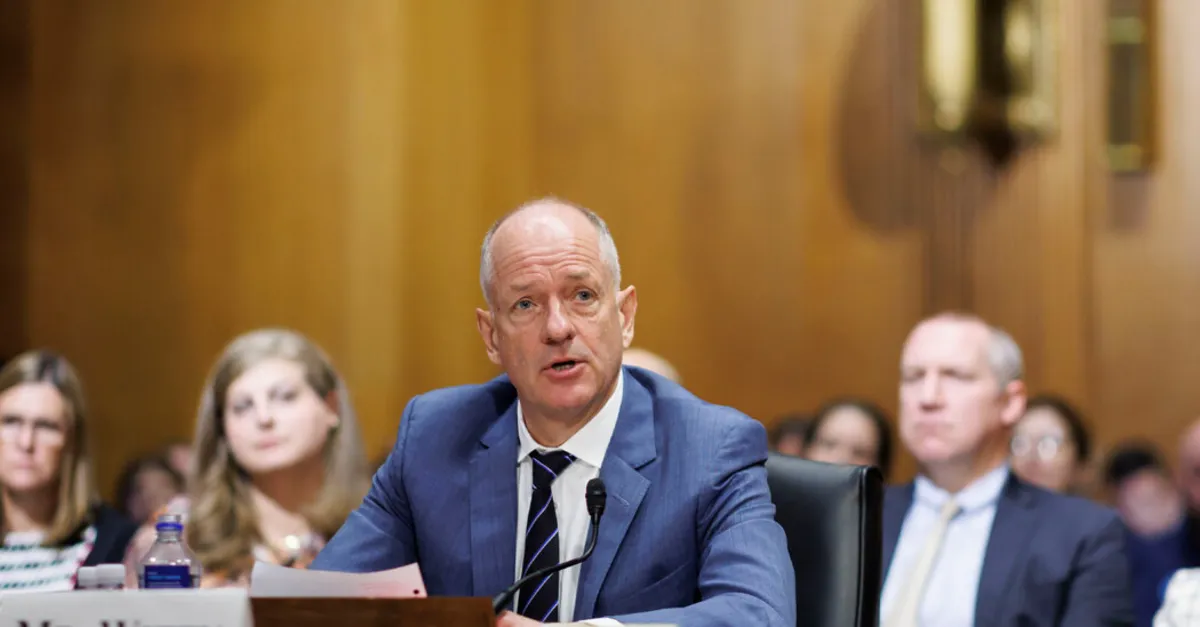
The chief executive of UnitedHealth Group, Andrew Witty, has officially stepped down from his role for “personal reasons,” as stated in a company announcement on Tuesday. This unexpected leadership change comes at a challenging time for the health care giant, as the company has also retracted its financial forecast for the current year due to higher-than-anticipated medical costs. UnitedHealth Group has now indicated that it expects to “return to growth in 2026.”
Following the announcement of Witty's resignation, UnitedHealth Group’s stock plummeted by more than 17 percent. This substantial decline is compounded by a previous significant drop in April, when the company’s quarterly earnings fell short of market expectations. Over the past month, the stock has now lost nearly half of its value, raising concerns among investors and stakeholders alike.
In the wake of Witty’s departure, Stephen Hemsley, the chairman of the board of directors, will immediately take over as the new CEO. Hemsley previously held the position of chief executive from 2006 until 2017. In a statement, he noted that Witty led UnitedHealth Group “during some of the most challenging times any company has ever faced.”
UnitedHealth Group has encountered significant turmoil recently. This includes the tragic killing of Brian Thompson, the chief executive of UnitedHealthcare, the group’s health insurance division, late last year. Thompson was shot in Midtown Manhattan on December 4, and Luigi Mangione, a 27-year-old suspect, was arrested five days later in Altoona, Pennsylvania, and charged with murder. Notably, Mangione, who is not a customer of UnitedHealthcare, has pleaded not guilty and was carrying a statement criticizing the health care industry at the time of his arrest.
In light of these challenges, Witty addressed some of the concerns surrounding the health care industry in a New York Times Opinion piece shortly after Thompson's death. He acknowledged the dissatisfaction many feel regarding the current health system, stating, “We know the health system does not work as well as it should, and we understand people’s frustrations with it. No one would design a system like the one we have. And no one did. It’s a patchwork built over decades. Our mission is to help make it work better.”
UnitedHealth Group remains a dominant force in nearly every segment of the health care sector in the United States. In addition to its vast health insurance operations through UnitedHealthcare, the company’s portfolio includes its Optum subsidiary, which manages approximately 90,000 physicians and clinics and operates as a large pharmacy benefit manager.
Looking ahead, UnitedHealth Group faces additional scrutiny as the Justice Department, along with four Democratic state attorneys general, filed an antitrust lawsuit against the company in November 2024. This legal action aims to block a $3.3 billion acquisition of Amedisys, a substantial player in the home health sector. As Witty departs and Hemsley takes over, the road ahead for UnitedHealth Group will be closely watched by analysts and stakeholders.
Before stepping into the role of chief executive at UnitedHealth Group in 2021, Andrew Witty was the CEO of the pharmaceutical company GlaxoSmithKline. Additionally, from 2013 to 2017, he served as the chancellor of the University of Nottingham, his alma mater, in England. Witty's extensive background in both the pharmaceutical and health care sectors has shaped his leadership approach during his tenure at UnitedHealth Group.